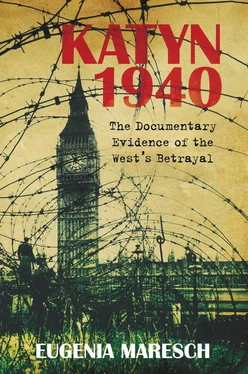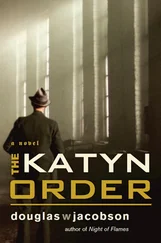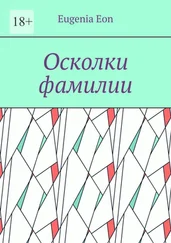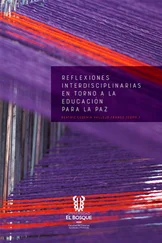3. The PCK guarantees that it will undertake with due care and piety all exhumation works, identification and reburial of such a large number of bodies.
4. Accordingly, it is advisable that the PCK Information Office should send a propaganda-free Technical Commission to Smolensk, which would initially investigate the extent of exhumation work and under what conditions it can be undertaken by the PCK .
5. The exceptionally difficult task of the first committee, as well as the compulsory presence of two high ranking officials of the PCK from Kraków, requires unanimity of the entire committee, in their attitude towards the expected scheming of German propaganda and other unforeseen measures. This can be done by sending a member of the Executive Committee to take charge in setting up a Technical Commission on site, reporting back immediately to the Executive Committee.
From a tactical point of view, the actual decision of the Executive Committee was phrased thus:
‘The Executive Committee decided to send to Smolensk a Technical Commission of five persons from Warsaw. One member of the Executive Committee, the Secretary Skarżyński and four others who could remain there, if need be. Because the PCK was deprived by the German authorities of its functions, including the care of the graves, Skarżynski is limited to the tasks of the Information Office and as such, is authorised only to act within its confines.’
I dictated this text on the telephone to Dr Grundmann, to pass the message to Kraków’s authorities, adding that I would not pay lip service to any political or propaganda purposes.
At 13.00 hours, together with others from the Technical Commission: [Ludwik] Rojkiewicz, [Jerzy] Wodzinowski, [Stefan] Kołodziejski and Dr [Hieronim] Bartoszewski, met at Okęcie [Warsaw] airport and departed at 15.00 hours for Smolensk. During departure and throughout our stay, cameras surrounded us, a real pest, which we could not get rid of. During our journey I gave instructions to all the PCK representatives to keep close in one group, not to be drawn into unnecessary conversation with the Germans; not to sit with them at the table, and when being filmed, to close ranks.
Canon [Stanisław] Jasiński joined the group, representing Kraków’s Metropolitan Bishop, as it turned out, just to take care of the prayers and execute the last rites. There was also Dr [Tadeusz Susz-] Pragłowski from Kraków, who as a criminologist was sent without precise instructions and after a general view of the graves declared that there was nothing for him to work on and promptly departed. Besides them, there were in the aircraft Herrn Zenzinger from the office of the German Propagandaamt in Kraków and three German policemen from Berlin’s Criminology Department, apparently to work on deciphering difficult documents found on the corpses and three young, suspicious looking Poles on service with the Germans, one of whom was a camera operator.
On arriving in Smolensk on 15 April, I found out that the responsibility of overseeing the works on the graves lay in the hands of Lieutenant [ Oberleutnant Gregor] Slovenzik, commander of the local company of the Propaganda Abteilung ( Aktivpropagandakompanie). This company was led by front line officers, the Oberleutnant and his second in command Leutnant von Arndt [Ahrens] had a military mentality, though, at the same time, the specific, national-socialist character of Goebbels’ Department. It forced us to be on our guard.
In the evening of 15 April, after a meal in the company’s mess, OLt Slovenzik spoke to us at some length about the work so far done on the graves. According to his first sentence of the introduction, the Polish officers fell into the Bolsheviks’ hands as a result of the German Reich’s subjugation of the whole of Poland in September 1939; part of the territory gained was handed over to the Russians. He adduced further that news had reached his company that 15 km from Smolensk and 4 km from Gnezdovo [railway] station, in a place called Koze Gory in Katyn woods, Polish workers had, in the spring of 1942, at the instigation of the local people, dug up a grave, and finding the bodies of the Polish soldiers, backfilled them and put up two crosses made of birch wood to mark the spot. This is where the Polish officers murdered by the NKVD were found. The work undertaken had revealed several mass graves, containing layers of bodies of the Polish officers.
It was evident, continued OLt Slovenzik that (among sparsely planted pine wood forest, 20 to 30 years old) the graves were cordoned off by barbed wire and people had ben forbidden to go there since 1934. On this wide terrain, there is a house, [ dacha ] which was used as a summer retreat by the Smolensk NKVD officials. Apparently it was here that execution of Russian civilians took place. The local people (railway workers at Gnezdovo station and peasants) who were questioned declared that from the beginning of March to the second half of April 1940, two or three caged wagons would arrive daily at Gnezdovo station with the Polish officers. They would be loaded into trucks, which then drove to the fenced-off area of the wood. One of the witnesses declared that the noise of the shootings and screams would reach his house daily.
Photograph copies of statements from the three or four Russian peasants were shown to us. Talks undertaken by our committee members with the local people over a number of weeks have confirmed these stories.
Furthermore, Slovenzik added that after reporting these facts to his authorities and by receiving an assignment to inspect the graves, his soldierly duty had been done. On being moved to the core by the tragedy of the Polish officers, he had tried to do this work with care and attention, knowing that the families of the dead were waiting for information and the return of artefacts that had been found on the bodies. He was proud of the fact that a telegram from the Führer with instructions that the families of the dead should be allowed to receive this information, proved that his efforts in this case were on the right track. He ended his speech with an appeal to the Polish nation to be vigilant against the dangers of the Bolsheviks with who the German Reich was now at war.
In response, I explained that as a representative of the PCK Executive Committee, we had arrived for one purpose only – to ascertain the situation of the graves and to leave behind a Technical Commission, which within two or three days would grasp the scope of work of identification of the corpses and their re-burial in the freshly dug up graves; and to safeguard the artefacts of a personal nature and return them to the families of the dead. I got the reply that the German authorities would give us all the help required and the committee on site would have access to all the gravesites for the exhumation and identification purposes as well as the collection of documents and papers and their deposit in an office some 4 kilometres away from the graves. The documents for the time being belong to the Army Command and before proper utilisation was made, they must remain with the Field Police [ Geheimfeldpolizei ]. After their use, they would be turned over to the PCK to be delivered to the families.
After certain formalities were completed, regarding provision for the Commission and all other costs that would have to be covered later by PCK expenses, it was agreed that in a few days time the committee would be strengthened by several other members according to a plan that would be presented to the authorities by Mr Rojkiewicz in Warsaw.
In conclusion concerning the PCK , I ended by saying that the discovery of the mass graves of the Polish officers would certainly have a devastating effect on the country. Familiar with a series of tragedies since the war started, every Pole could not but connect that today’s enemy of the Reich, previously their ally, with whom they enjoyed cordial relations after the August pact, carried out the murder. On this occasion, I took the opportunity to correct inaccuracies in OLt Slovenzik’s speech, that in fact Soviet troops invaded Poland on 17 September 1939 during the German-Polish campaign, as a result of the Russo-German Pact. I did not receive any reply to my two remarks. OLt Slovenzik blushed and was visibly embarrassed.
Читать дальше












